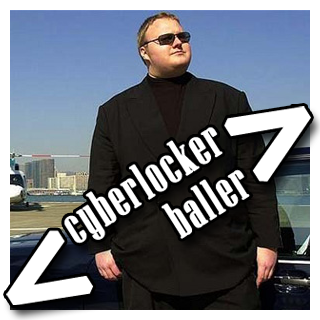 NEWS
NEWS
 NEWS
NEWS
 NEWS
NEWS
![]() Ever since the Megaupload debacle started, Kim Dotcom has been facing a series of problems. Adding to his woes, Facebook and Twitter have disabled Kim’s social media accounts, considering him a fraudster. Kim is facing the problem of celebrity impersonation as Google search takes users to another Twitter account bearing the Kim Dotcom name, which is fake. Surprisingly, the fake account has nearly 9300 followers, which further creates the problem for Kim. He even faxed his official government-issued ID–a driver’s license–but still can’t get Twitter to believe he’s the real Kim. Moreover, Facebook won’t accept ‘Dotcom’ as a valid surname for a personal account.
Ever since the Megaupload debacle started, Kim Dotcom has been facing a series of problems. Adding to his woes, Facebook and Twitter have disabled Kim’s social media accounts, considering him a fraudster. Kim is facing the problem of celebrity impersonation as Google search takes users to another Twitter account bearing the Kim Dotcom name, which is fake. Surprisingly, the fake account has nearly 9300 followers, which further creates the problem for Kim. He even faxed his official government-issued ID–a driver’s license–but still can’t get Twitter to believe he’s the real Kim. Moreover, Facebook won’t accept ‘Dotcom’ as a valid surname for a personal account.
“@Twitter declines to certify me. I faxed an ID. They think it’s fake. A search for my name shows imposter as the first result. Might quit!” Kim said in response to the rejection by Twitter.
The Megaupload debacle started when a controversial celebrity video was released, and was shutdown by UMG. The Mega Song went viral when it was released on December 9 but was soon taken off YouTube as Universal Music Group filed a complaint stating that the song violated UMG’s copyrights. Dotcom was able to reinstate the video for a few minutes but was taken down again and were warned by YouTube that their account would be blocked if they keep posting infringing contents. Earlier this year in January, the government shutdown Megaupload and filed criminal cases against Dotcom and his allies. It was followed by the arrest of Dotcom and other Megaupload employees by New Zealand officials. After being denied bail for several times, Dotcom was granted bail on February 22 by the New Zealand court as Megaupload’s chief financial officer filed an affidavit supporting Dotcom’s contention that he has no money to flee, and established that he has only two passports.
Dotcom made a comeback on Twitter on June 19, but the issues of impersonation started surfacing up. And now, he is having trouble ascertaining the legitimate status of his social network accounts. But he is not the only one facing such issues, as social networks have laid some stringent guidelines regarding account verification. This has been done to fight the celebrity impersonation and rule out the fake accounts that misguide people and fans. Twitter started doing this from 2010, where it dropped several verified accounts.
THANK YOU